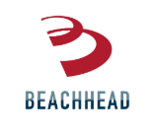Visit Australia
Starting your Australian Expansion
Accelerate your Australian Market-Entry with a Visit
Australia is an attractive destination for international businesses seeking to enter a vibrant market or establish a presence in the Asia-Pacific region. Many businesses will seek to visit Australia to explore market opportunities and dynamics and to initiate relationships with potential partners and clients. Visiting early in the market-entry process will enable you to gain invaluable insights to enhance the development of your market-entry strategy.
This guide provides useful and practical information for travelling to Australia in the initial market-entry phase to maximise the opportunities for establishment and growth.
Undertake Market Research
Doing thorough market research and visit planning is critical. Identify target industries and potential clients in Australia. The Australian Trade and Investment Commission (Austrade) and international government trade agencies operating in Australia provide market insights and reports that can help you understand specific sector dynamics.
Your market research should also identify the best cities and regions of Australia based on your industry, target clients and where there may be industry clusters.

Align your Visit with a National Conference
Attending a major national conference in Australia is an ideal way to develop relationships and win new business. It enables you to connect with key industry participants, potential clients and stakeholders and develop an understanding of the market that is crucial for initial or ongoing market-entry strategy and growth.
There are a multitude of conferences and events in Australia. Here are some considerations for identifying which conference might be best for your business.
- National industry conferences associated with the national industry association or peak body for your industry or target industry often provides the best value and largest opportunity.
- Government delegations and trade missions are an ideal way to maximise opportunities. Many governments and trade organisations host trade missions and delegations aligned with key national industry conferences. These delegations may include shared exhibition participation and promotion, side programs of events, briefings, meetings and business matching.
Beachhead has developed a Directory of Major Industry Conferences in Australia.
Leverage Connections and Schedule Meetings
Plan your visit well in advance. There are many ways to engage with connections in Australia both directly and indirectly. These include government trade and investment agencies, bilateral business chambers, industry associations and professional services providers. Direct approaches to prospective clients and partners are also effective.
Opportunities to engage are also available in areas where there are clusters or agglomerations of similar industries. Examples of this are Tech Central, a technology precinct in the Sydney central business district (CBD), or the Melbourne Biomedical Precinct. Be aware of the sometimes significant distances and travel time between cities and locations when scheduling meetings.
Australians are generally receptive to meeting international businesses. Punctuality and planning are valued, and it is important to reach out to schedule meetings with potential clients, partners or connections well before your arrival.
Networking and building rapport are important. Australians appreciate authenticity and may blend business with social interactions, such as a coffee meeting or a business lunch. While engagement can sometimes seem casual, Australian business is highly professional with expectations of punctuality, responsiveness and commitment.
More information on Business Culture in Australia
Plan Your Visit

Visa and Travel Documents
Australia has travel and visa requirements and restrictions. All visitors to Australia require a valid passport and visa or Electronic Travel Authority (ETA) to enter the country. If attending a conference or doing business in Australia, business visitor visa options are available. The Department of Home Affairs provide information on the visa relevant to the purpose of the visit. Explore visa options for visiting.
Flights and Accommodation
Book your flights and accommodation early. It is busier in Australia’s peak season from October/November to February/March.
Materials and Samples
If you require marketing collateral, materials or samples consider whether you ship beforehand or bring them with you. Australia has very strict customs and biosecurity regulations.- Australia’s biosecurity and border controls Australia's biosecurity and border controls
- Bringing or mailing goods to Australia Bringing or mailing goods to Australia - DAFF
- Check that the samples are allowed into Australia. For detailed import conditions for all goods Biosecurity Import Conditions system (BICON)
Useful Information
| Time Zones | Time Zones - Australia has multiple time zones ranging from UTC +8 to UTC +13. Sydney (NSW), Canberra (ACT), and Melbourne (VIC) have daylight savings time (from October to April) while Brisbane (QLD) and Perth (WA) do not. Time Zones in Australia |
| Public and School Holidays | Check public holiday dates before you start planning your trip. Each state in Australia has different public and school holidays. Australian public holidays January coincides with summer holidays. Many offices and business close for two weeks during the Christmas period and early January and many people will be on holiday until after Australia Day (26 January). |
| Weather | Australia's climate varies greatly throughout the eight states and territories; there are four seasons across most of the country and a wet and dry season in the tropical north. Australia's seasons are at opposite times to those in the northern hemisphere. December to February is summer; March to May is autumn; June to August is winter; and September to November is spring. Australian Bureau of Meteorology (BoM). |
| Getting around | Taxi and Uber ranks are available at most major airports. Taxi ranks are also available at various locations in the Central Business Districts (CBDs) and can be flagged down. Taxis/Ubers can also be booked via their website or apps Uber, 13 cabs |
| Purchasing |
The Australian Dollar (AUD) is the official currency in Australia. Cash, debit and credit cards are the most common forms of payment. Cards may incur an additional surcharge. There are foreign exchange outlets at the airports, hotels and bank automated teller machines (ATMs). All prices shown in shops and restaurants includes Goods and Services Tax (GST) of 10% if applicable. It may be possible to claim a GST (Goods and Services Tax) and WET (Wine Equalisation Tax) refund for some goods bought in Australia that you then take out of the country with you. Tourist Refund Scheme (TRS). |
| Emergency services. | Australia’s emergency phone number is 000 for police, ambulance, fire and emergency rescue |
| Country Dialing Code | +61 |
| Electricity voltage | 220-240 AC, 50 Hz. |
Mix business with Pleasure
Australia has a spectacular natural and diverse environment, multicultural communities, excellent food and wine, great weather (most of the time!) and a relaxed lifestyle. If you have time to take a break, the Tourism Australia website (www.australia.com) is a good place to start planning.

More information
Get in touch
Let us know how we can help.
To learn more about starting your Australian expansion please contact us today. We’re here to help you navigate the complexities of doing business in Australia every step of the way including supporting market visits and programs.
You can contact us via email info@beachheadmgt.com or telephone +61 (0)2 9045 8851.
